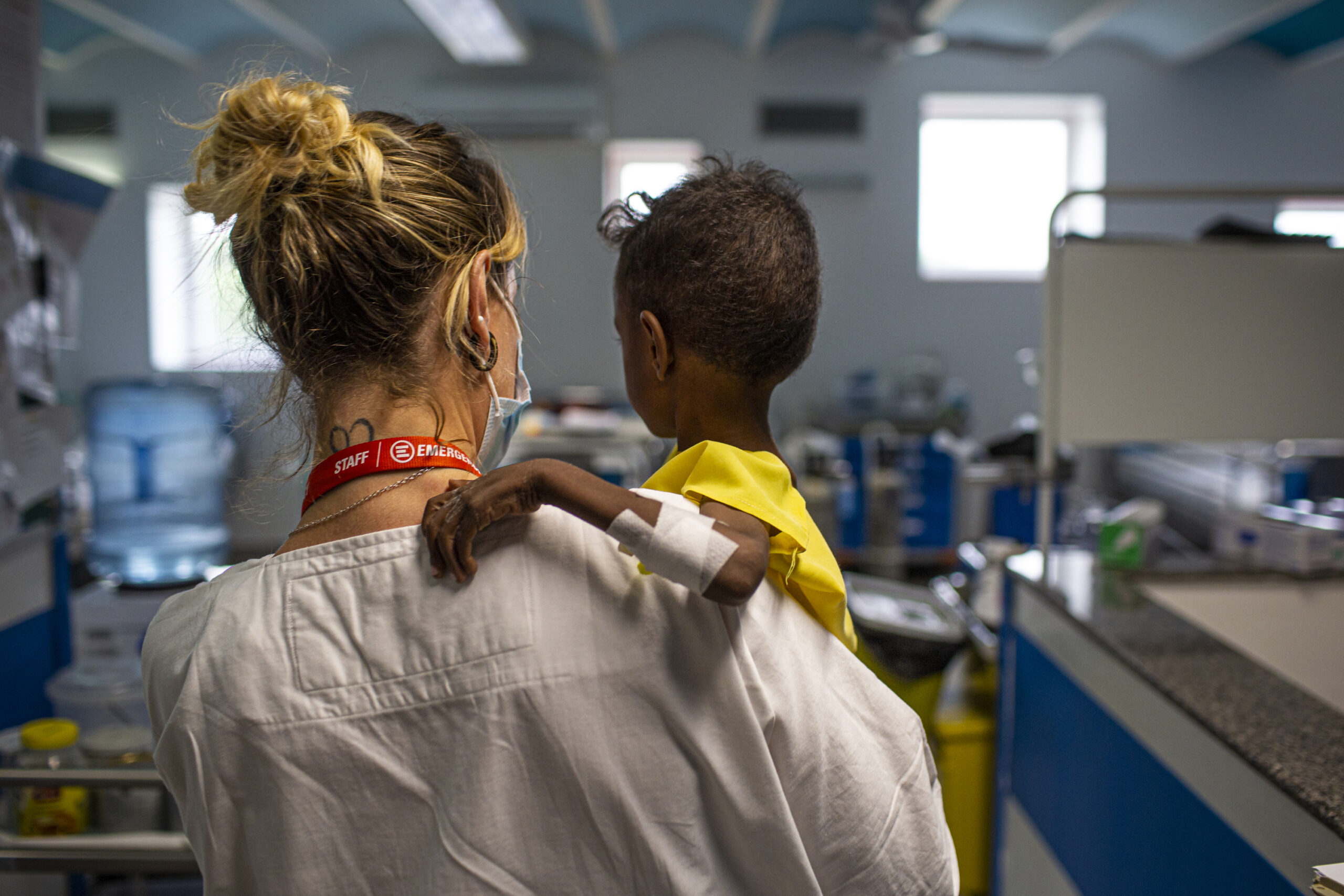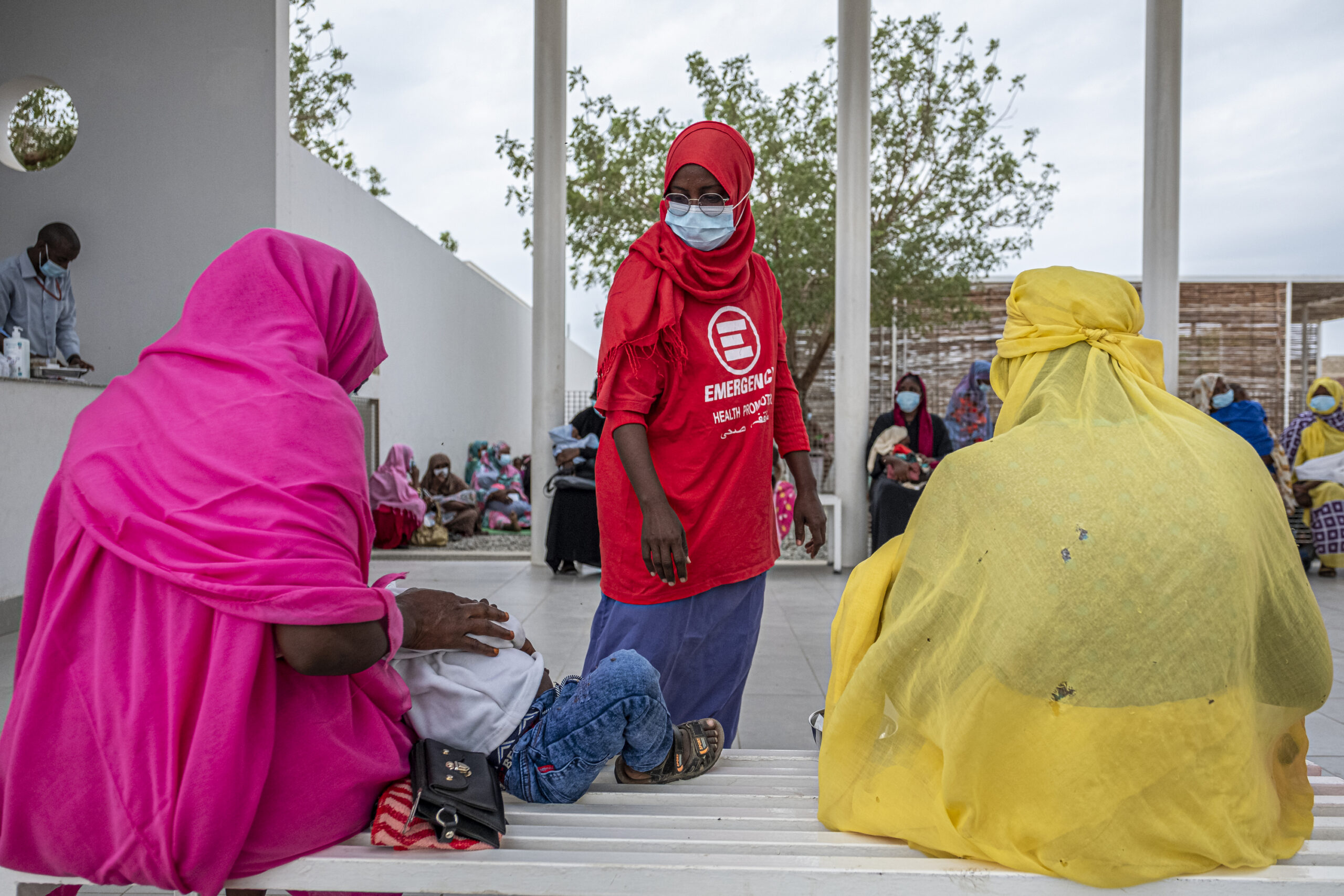Sudan | Our support to mothers in Port Sudan
In a country already marked by poverty, instability and lack of resources, 70% of Sudan’s medical facilities have been damaged or rendered inoperable by the conflict, impacting essential healthcare.
These include obstetric services, which have been shut down or otherwise inaccessible due to the fighting and absence of ceasefires.
According to UNICEF, 1.3 million children have been born since the war broke out.
Newborns have come into the world and begun to grow up in the midst of war, in poor sanitary conditions and inhospitable, makeshift shelters. These environments and conditions can fuel complex health problems and even lead to death.
Alarming data on maternal and child health in Sudan
Malnutrition affects 1.2 million pregnant or breastfeeding women in Sudan, and can exacerbate health conditions before and after childbirth.
- The UN reports that 54.9 out of every 1,000 Sudanese children will die before their first birthday;
- According to an analysis published in The Lancet, 1.1 million pregnant women in Sudan were in need of care as early as 2023;
- Access to healthcare in Sudan is increasingly compromised by malnutrition, deteriorating living conditions, economic crisis, and psychological and physical stress caused by war-related trauma. Restrictions on movement prevent mothers from accessing necessary regular check-ups.
EMERGENCY’s work for mothers in Port Sudan
In Port Sudan, on the shores of the Red Sea, thousands of families fleeing fighting in different areas of the country have found refuge. They survive without means of subsistence in makeshift refugee camps, in buildings converted into shelters, and on the streets.
At our Paediatric Centre in Port Sudan, we provide care every day to around 90 children, as well as check-ups and treatment for mothers and pregnant women. We support them during and after pregnancy to help fill the gap in specialist services.

Since the war broke out, we have provided 5,249 ante-natal obstetric consultations and 678 post-natal consultations, both at home and at our Centre. During these visits, we explain breastfeeding techniques, inform people about how to prevent avoidable diseases, and run a family planning awareness programme.
Alia, one of EMERGENCY’s Sudanese midwives
With our team of midwives, accompanied by a nurse and a community health worker, we work in various neighbourhoods to monitor pregnancies, check vital signs, deliver medication for treatment and administer vaccines. The most urgent cases are brought immediately to the Paediatric Centre in our ambulances.

It is essential to protect the health of newborn babies: by doing so, we protect their rights and their future. Mothers know they can come to us and receive free, high-quality care. Since the beginning of the war, our work in Sudan has never stopped, and we continue to support the population in Port Sudan. We hope that the children we treat will be able to experience peace with their families as soon as possible.
Maria Elena, one of EMERGENCY’s international midwives
The Story of M., 25
“Before the war, we lived in Khartoum, then we were forced to move. It was a three-day walk, without stopping, then a final stretch by car until we arrived in Port Sudan.”
M., 25, arrived at our Paediatric Centre to have her baby examined, but she also needs a check-up: she is expecting another child, but has not yet been able to access any pregnancy monitoring support.
“First we found shelter in a school that had been turned into a refuge, now we live in a tent. The water is dirty, full of insects, undrinkable, there are no toilets and it is impossible to wash. At night, we sleep on the ground and are forced to relieve ourselves in a bottle, because going outside is too dangerous,” she told us.
“We can’t get in touch with our families, the phone line doesn’t work. I can’t rest, I constantly think about the life our children have to live during the war.”
EMERGENCY’s project in Port Sudan is funded by the European Union.

